[ad_1]
When President Joe Biden was sworn into office on Jan. 20, 2021, he became the oldest person in U.S. history to assume the presidency.
Though the U.S. president holds the highest, most powerful office in the world, the Founding Fathers laid out very few requirements for someone to win the job. To become President of the United States, you must be a natural-born citizen (not a naturalized immigrant) who has lived here for 14 years and is at least 35 years old. There are no experience requirements, as evidenced by the fact that President Trump and several other presidents from the 1800s didn’t hold political office before taking the White House.

It’s unclear exactly why the founders set 35 as the minimum age limit—some historians think it was to avoid foreign influence in the executive or to keep families from creating huge political dynasties. However, with the 2020 election just around the corner, a new question has emerged: can someone be too old to run for president?
There’s no constitutional cap on the president’s age but as human lifespans continue to lengthen, it becomes an even more important question. Past polls suggested that the majority of Americans wouldn’t vote for someone over 75—but that was disproven in the 2020 election. To learn more about the various ages of American presidents, Stacker ranked all 46 presidents from youngest to oldest at the time of their inauguration and took a look at their biographies to see how age and experience shaped each president’s time in office.
Keep reading to see which young presidents came to office by accident (or not) and tried to change the country, and discover which president’s wife secretly became commander-in-chief after health issues nearly ended his presidency early.
You may also like: Most and least popular senators in America
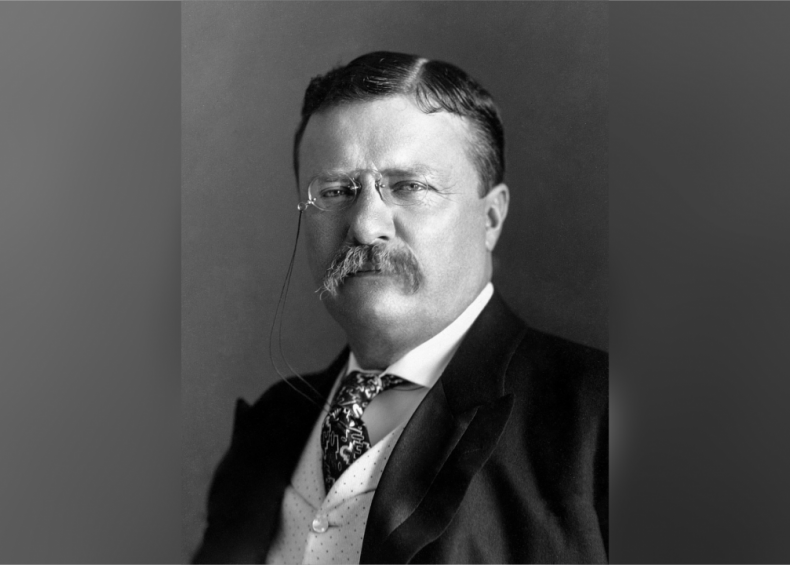
46. Theodore Roosevelt
– Age at inauguration: 42 years, 322 days
– Order of presidency: 26
Theodore “Teddy” Roosevelt’s relative youth didn’t help or hinder his ascent to the presidency, largely because America’s youngest inaugurated president wasn’t technically elected. He was selected as William McKinley’s running mate for his 1900 reelection campaign after McKinley’s previous VP passed away, in part because of his popularity as a war hero and his strong progressive credentials as governor of New York; he ascended to the presidency after McKinley was assassinated in 1901. However, his youth and vigor have become a central part of how Roosevelt is remembered today, with his past as a Rough Rider in the Spanish-American War and love for athletics an important part of how he’s remembered.
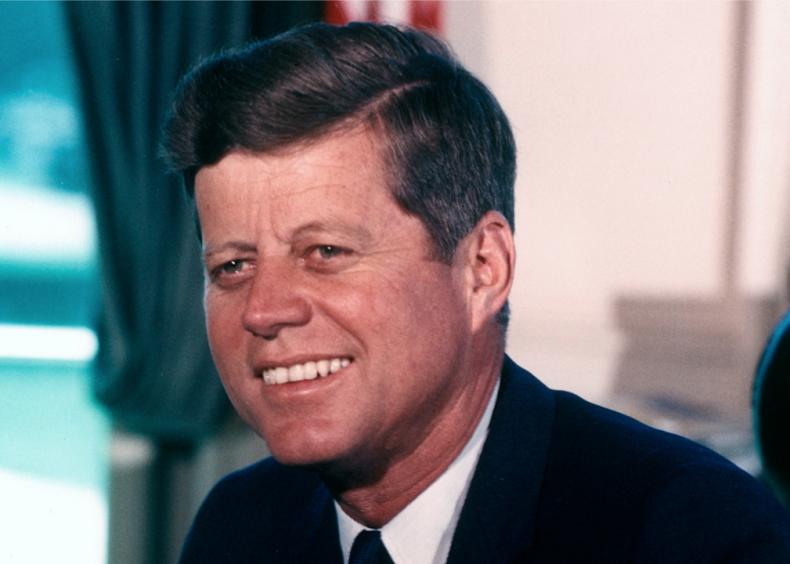
45. John F. Kennedy
– Age at inauguration: 43 years, 236 days
– Order of presidency: 35
The election of 1960 pitted youth against youth (at least in presidential terms) with 43-year-old Democrat John F. Kennedy going up against 47-year-old Republican Richard Nixon (who would ultimately win office when he was about a decade older). The two participated in the first televised presidential debate and despite the relative closeness of their age, Nixon looked pale and washed out next to the youthful, vibrant Democratic candidate on TV screens across America. The election was incredibly close and some credit JFK’s ultimate victory in the election to his performance in the debates, which proved to voters he wasn’t too young to take on the presidency but that he had the energy to drive real change.

44. Bill Clinton
– Age at inauguration: 46 years, 154 days
– Order of presidency: 42
Bill Clinton used his youth as an asset in their 1992 campaign for the White House; trying to win over the youth vote, Clinton appeared on MTV and took questions from a young audience and famously played the saxophone on the “Arsenio Hall Show.” Though Clinton’s age proved beneficial to him on the presidential campaign, he hadn’t always benefited from entering politics at such a young age. As Arkansas’ youngest governor, he made several policy stumbles during his time in office that led voters to believe him too inexperienced for the job, and voters ousted him after just one term.
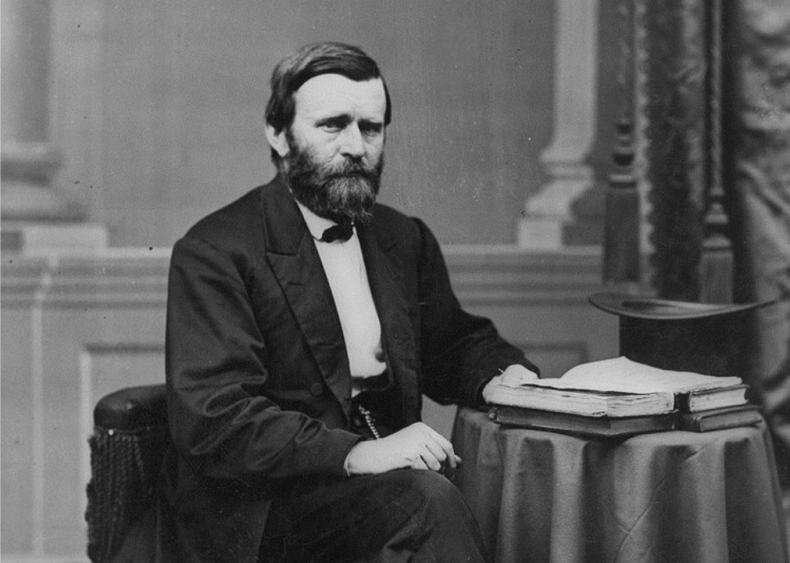
43. Ulysses S. Grant
– Age at inauguration: 46 years, 311 days
– Order of presidency: 18
President during the bulk of the Reconstruction from the Civil War, Ulysses S. Grant was a war hero that many Americans hoped would bring the youth and energy he brought to the battlefield to the Radical Republican agenda for rebuilding the fractured nation. History, however, has not reflected kindly upon his two terms in office. Grant’s political inexperience outweighed his success as a general and he often ceded control to the legislative branch, allowing Congress to set the agenda.
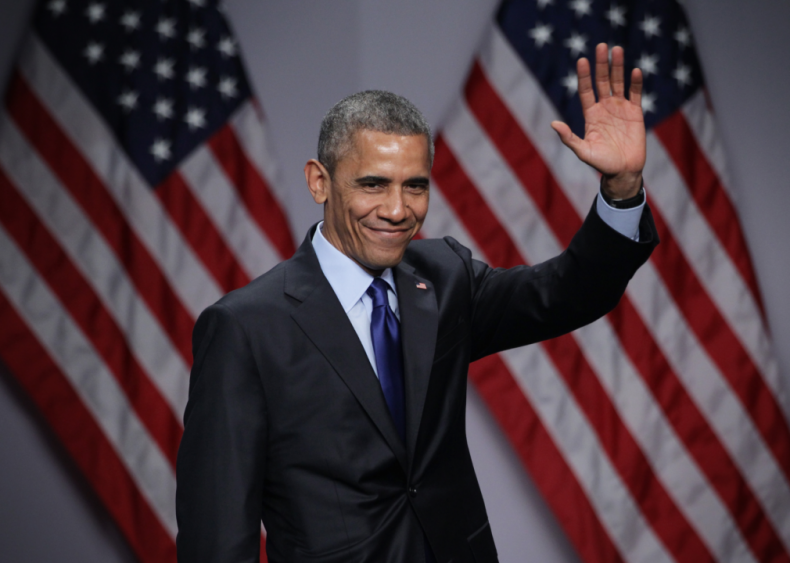
42. Barack Obama
– Age at inauguration: 47 years, 169 days
– Order of presidency: 44
Barack Obama took the 2008 Democratic primary by storm, beating out older, more experienced establishment candidates like Joe Biden, John Edwards, and Hillary Clinton by emphasizing the need for change from the unpopular Republican president George W. Bush who was presiding over a devastating economic recession. Obama fended off claims he was inexperienced in part by appointing many of his former campaign opponents, including Biden as his vice president and Clinton as his Secretary of State. After eight years in office, however, Obama left office not to comments about his relative youth but rather how much his time in the White House had visibly aged him.
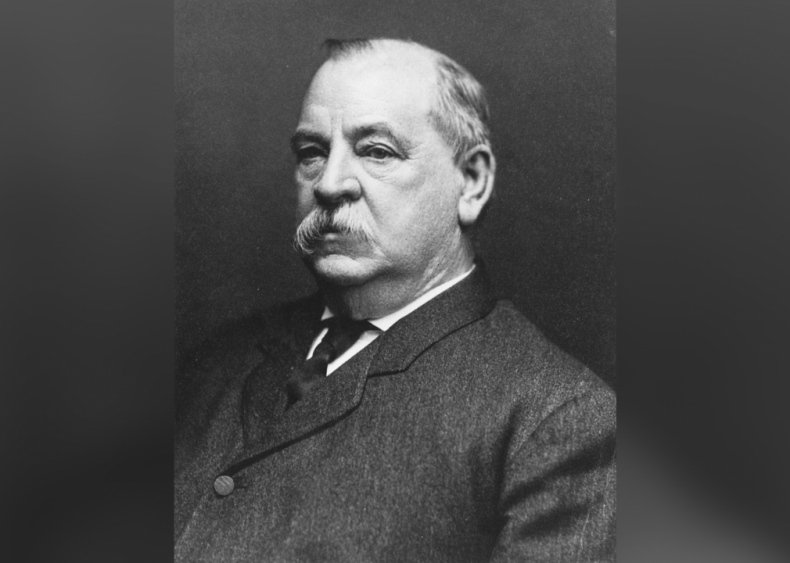
41. Grover Cleveland
– Age at inauguration: 47 years, 351 days
– Order of presidency: 22
The only president to serve two non-consecutive terms, Grover Cleveland inadvertently became a rising star of the Democratic Party in the late 1800s. Before taking on the presidency for the first time in 1884, he was asked to run for mayor of Buffalo by a friend and later took on the New York political machine to gain a reputation as a reformer. His age proved to be a significant factor not in his political life but his personal one; the press took him to town for marrying his 21-year-old ward two years into his first term.
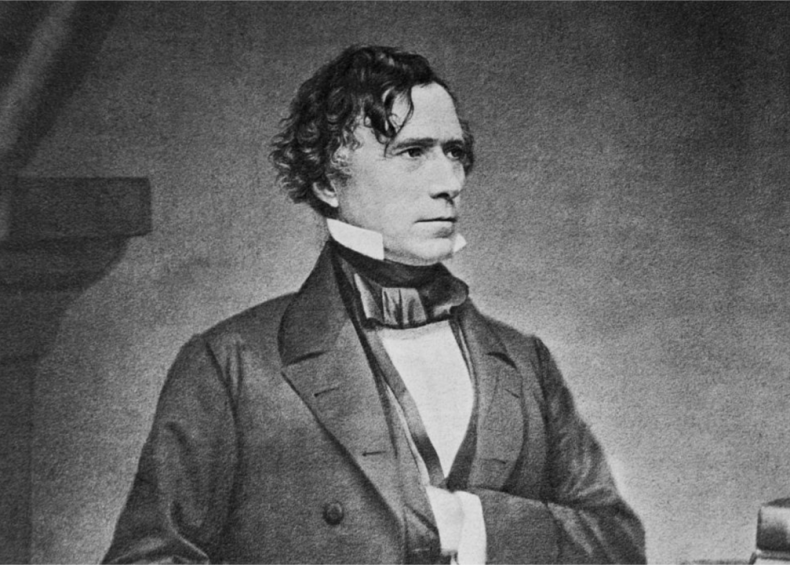
40. Franklin Pierce
– Age at inauguration: 48 years, 101 days
– Order of presidency: 14
Franklin Pierce isn’t regarded by modern historians as a great president, in large part because of his advocacy for slavery despite being a Northerner and generally hastening the country to the Civil War. His youth wasn’t particularly to blame; Pierce was a relatively experienced politician and had served in the New Hampshire legislature as well as both chambers of Congress. Rather, the death of his young son just before Pierce assumed office left him “nervously exhausted” from the start and his support of slavery won him few allies.
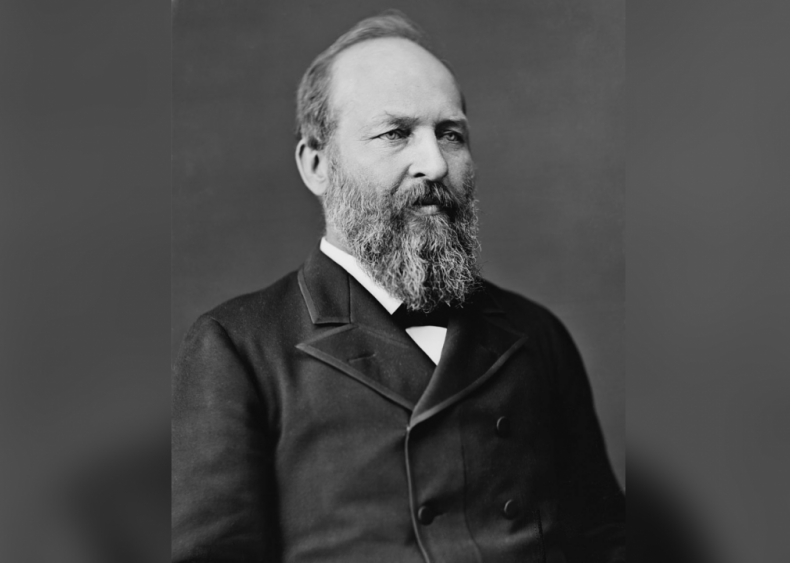
39. James A. Garfield
– Age at inauguration: 49 years, 105 days
– Order of presidency: 20
James Garfield won the closest popular vote election in history, beating out his Democratic opponent, General Winfield Scott Hancock, by less than 10,000 votes. Age paid little role in the competition between Garfield and Hancock, with the election mostly coming down to differing opinions over a tariff. Garfield’s age wasn’t able to affect much of his legislative agenda either, as he was assassinated four months into his presidency by a man who was upset at not receiving a job in his administration.
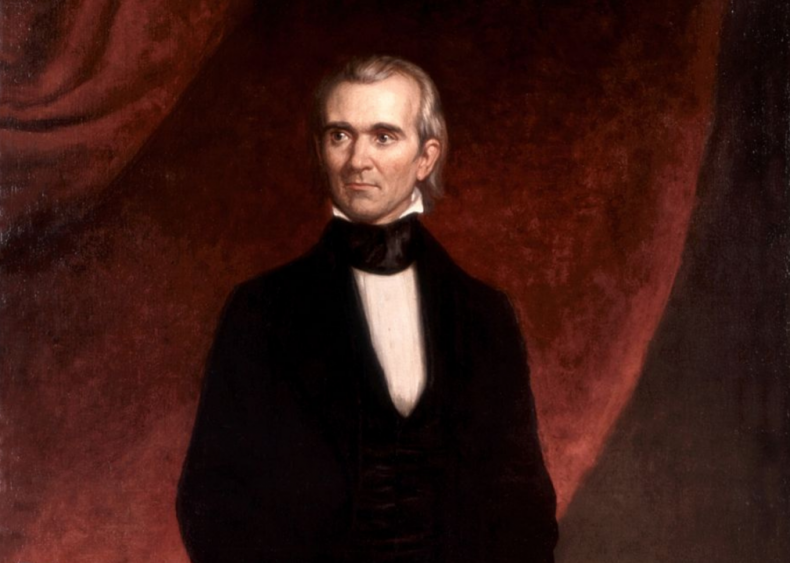
38. James K. Polk
– Age at inauguration: 49 years, 123 days
– Order of presidency: 11
Though he was the youngest president to hold office until the 20th century, Polk opted to serve only a single term. It was a busy one though, as he oversaw the Mexican–American War and some of the largest territorial expansions since the Louisiana Purchase, including the annexation of Texas. He’s consistently ranked by historians as one of the best presidents due to his spirited and vigorous involvement in the war as well as his fevered drive for expansion and, as a wartime president, helped define the role of president as commander in chief of the military.
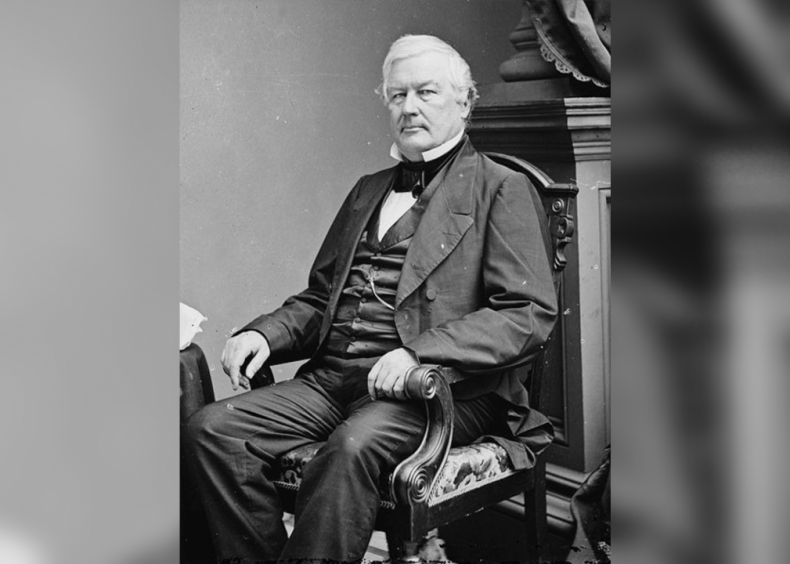
37. Millard Fillmore
– Age at inauguration: 50 years, 183 days
– Order of presidency: 13
Millard Fillmore ascended to the presidency after the death of Zachary Taylor, having been selected to the vice presidency to balance Taylor’s ownership of slaves with his personal opposition to slavery. His presidency was most characterized by his support of the controversial Compromise of 1850 which increased tensions between the North and South, and he didn’t receive the Whig nomination after finishing Taylor’s term in part because of it. His relative youth allowed him to play a role in politics, receiving the 1856 nomination for the nativist Know-Nothing Party, but after his defeat in that election, Fillmore almost entirely retired from politics.
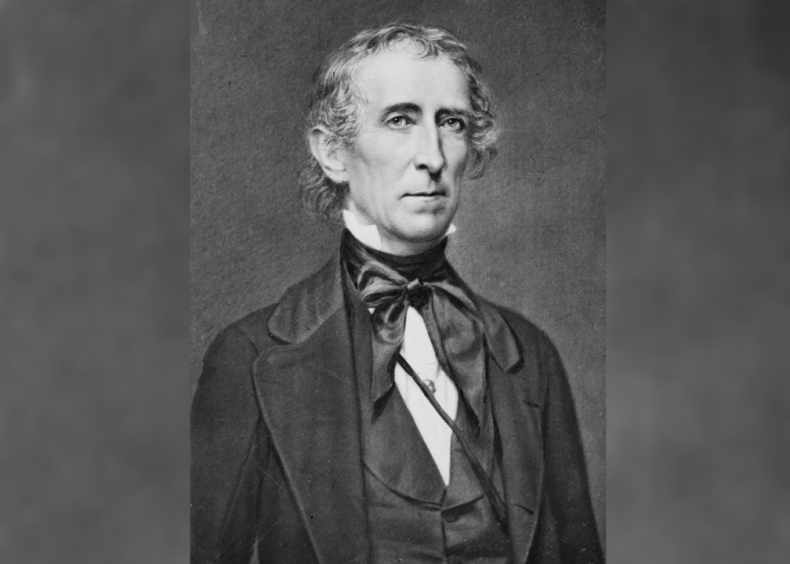
36. John Tyler
– Age at inauguration: 51 years, 6 days
– Order of presidency: 10
Like several other relatively young presidents, John Tyler entered the White House after the death of his predecessor William Henry Harrison. Their campaign was famous for the slogan “Tippecanoe and Tyler Too,” which referenced the battle which had made Harrison a war hero. It also spoke to how the two worked together to balance the ticket; Harrison was much older than Tyler and a Northerner while Tyler was added in hopes of winning supporters from the South who disliked the current system forged under Andrew Jackson.
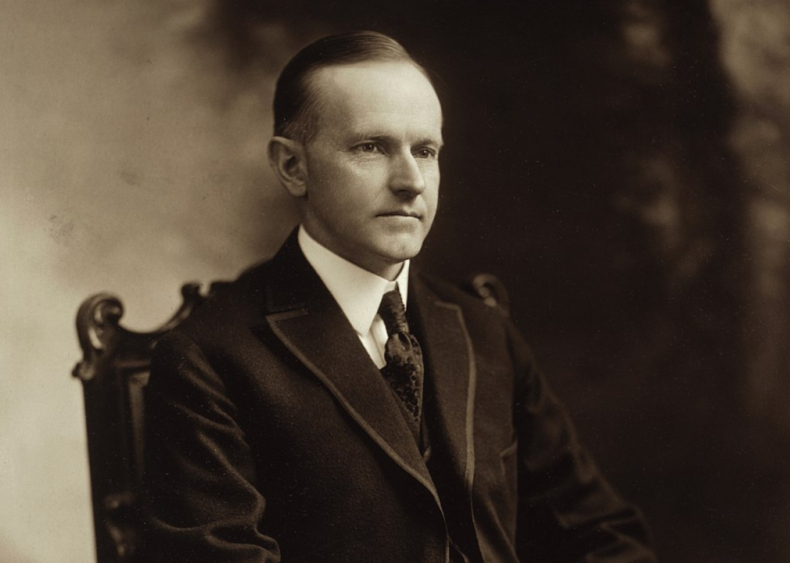
35. Calvin Coolidge
– Age at inauguration: 51 years, 29 days
– Order of presidency: 30
Calvin Coolidge took over for the last two years of Warren Harding’s presidency after Harding died unexpectedly in office before Coolidge won the presidency in his own right in 1924. He supported some of the Progressive movement’s causes—including women’s suffrage and the direct election of senators—but he became more conservative as he aged. This led to a famously subdued presidency that worked to limit the size of the federal government; after his presidency, Coolidge reportedly told a friend he felt he “no longer fit” with the present times shortly before his death.
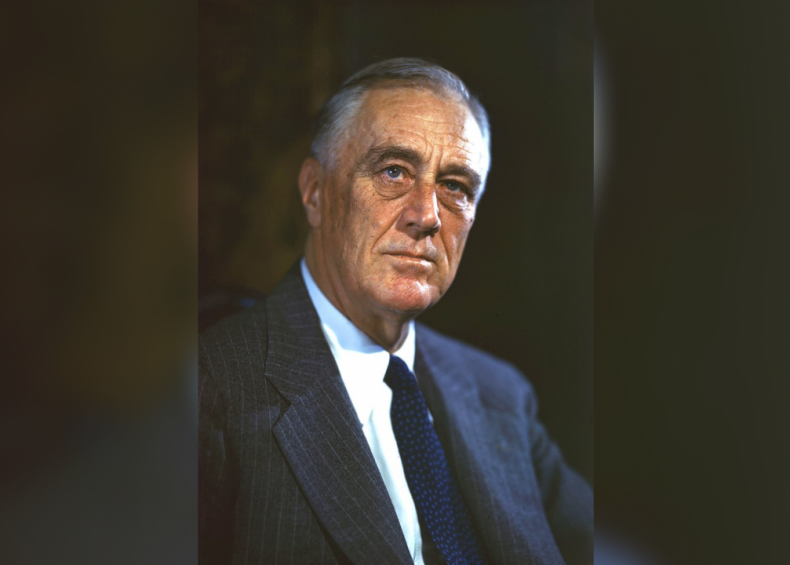
34. Franklin D. Roosevelt
– Age at inauguration: 51 years, 33 days
– Order of presidency: 32
America’s longest-serving president, dying amid his unprecedented fourth term in the White House, Franklin D. Roosevelt came into office and quickly proved himself a relatively youthful Democratic firebrand full of ideas to pull the U.S. out of the Great Depression. His struggles with the effects of polio grew during his 12 years in office and led many to question his ability to lead the country, especially as he ran for president a final time in 1944.
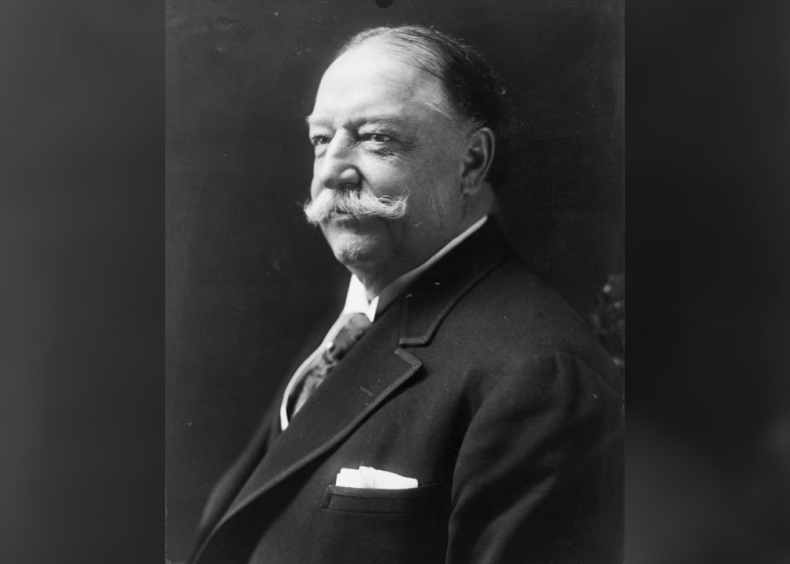
33. William H. Taft
– Age at inauguration: 51 years, 170 days
– Order of presidency: 27
Handpicked by Teddy Roosevelt to be the successor to his progressive agenda, William Howard Taft announced plans to lose 30 pounds during the campaign, perhaps an attempt to live up to the younger Roosevelt’s famed youth and vigor. However, Taft wasn’t much interested in being president at all and only served a single, rather conservative term compared to the more progressive leaders who came before and after him. He left the presidency at a young enough age to later fulfill his lifelong dream of becoming chief justice of the Supreme Court, where he served for nearly a decade.
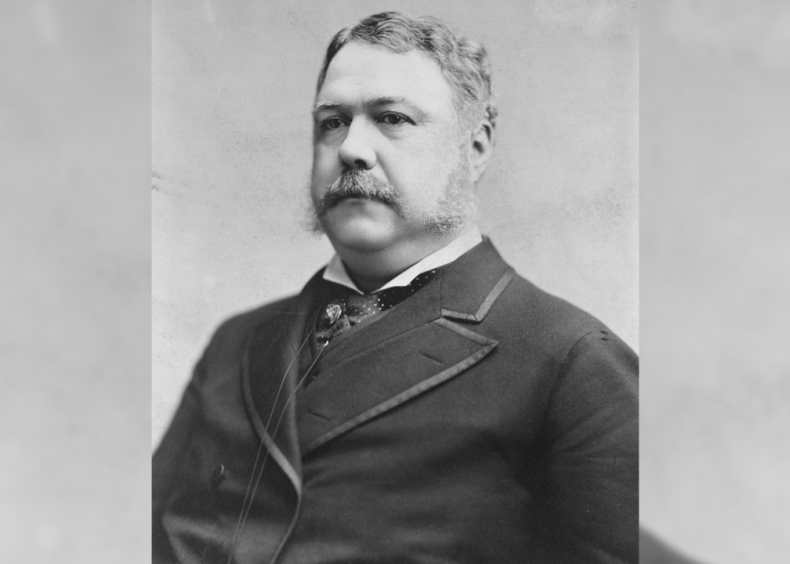
32. Chester A. Arthur
– Age at inauguration: 51 years, 349 days
– Order of presidency: 21
Perhaps best known by his iconic facial hair, Chester A. Arthur assumed the presidency after the assassination of James Garfield and only served three years in office. He’d been a surprise choice to be Garfield’s VP, often bucking party establishment and did not win the 1884 nomination for a second term. At that time, Arthur knew he was suffering from a fatal kidney disease and ultimately passed away two years later.
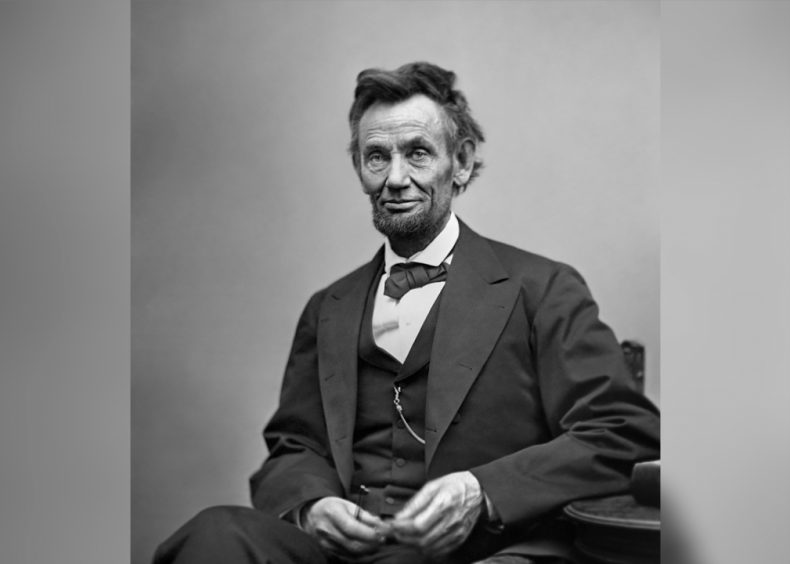
31. Abraham Lincoln
– Age at inauguration: 52 years, 20 days
– Order of presidency: 16
Abraham Lincoln splashed into the national consciousness after a series of debates on the issue of slavery against the popular Illinois senator Stephen Douglas in 1858. He brought the same articulate logic and energy he demonstrated in the debates to the White House two years later, using aggressive executive action to bring about the end of both slavery and the Civil War. Of course, one of the biggest questions of Lincoln’s presidency is not how age affected his presidency but rather how he would have affected the presidency had he been allowed to complete it; he was assassinated just one week after the Confederacy surrendered.
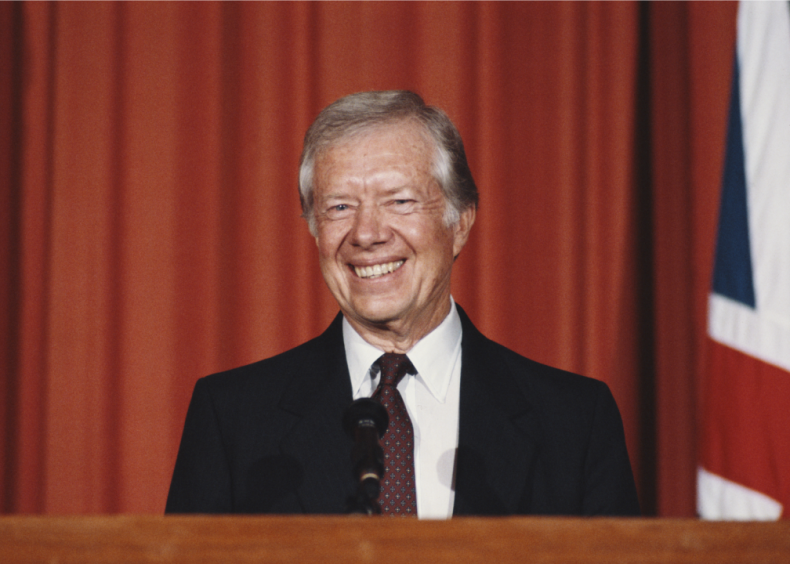
30. Jimmy Carter
– Age at inauguration: 52 years, 111 days
– Order of presidency: 39
Emerging from the relative anonymity, Jimmy Carter won the presidency in part because of the legacy of Watergate that still clung to Gerald Ford and the Republican Party. He faced several crises during his presidency that historians now acknowledge he handled well given the circumstances. It wasn’t enough to keep him from losing his reelection bid to the charismatic Ronald Reagan, who shined in televised debates.
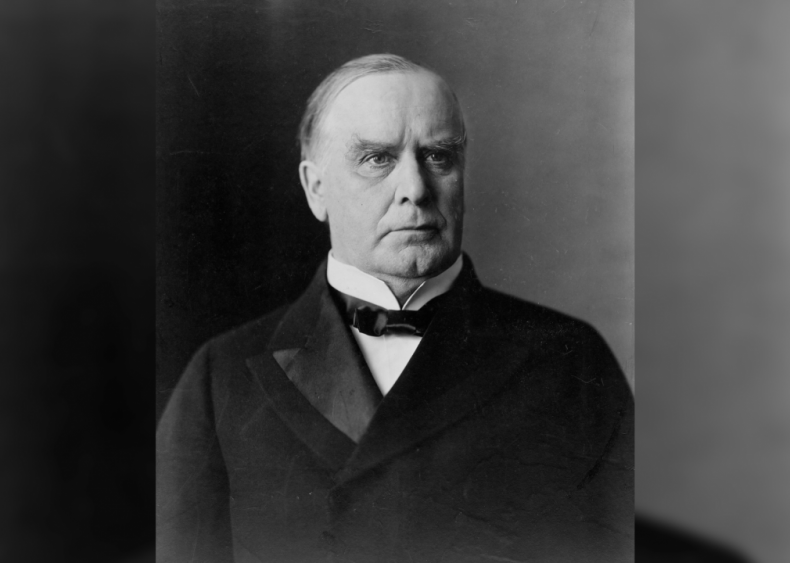
29. William McKinley
– Age at inauguration: 54 years, 34 days
– Order of presidency: 25
Riding into the presidency on an economic collapse that turned voters against Democratic leadership, William McKinley set the stage for the U.S. to become a world power by engaging the U.S. in its first international war since the War of 1812. The Spanish-American War of 1898 ended within a year and McKinley became extremely popular. After his previous vice president died while in office, McKinley ran alongside Teddy Roosevelt in 1900, using the younger war hero to balance the ticket and ensure his reelection.
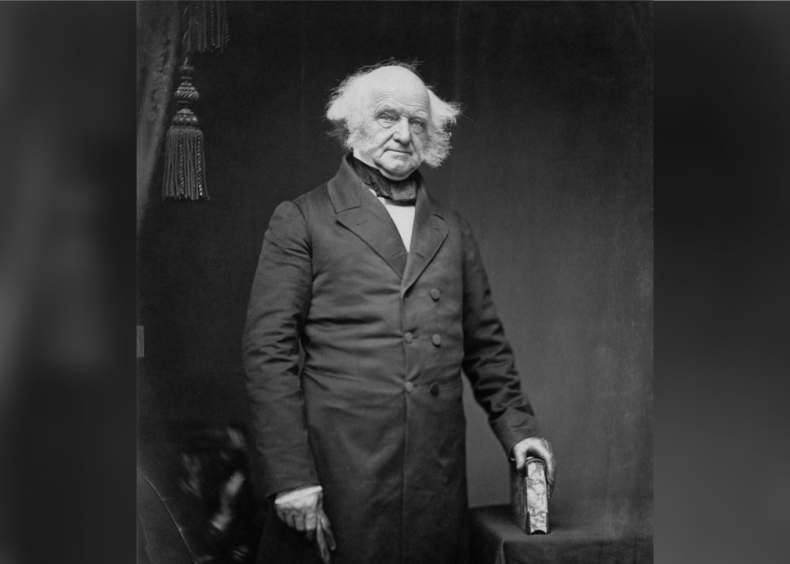
28. Martin Van Buren
– Age at inauguration: 54 years, 89 days
– Order of presidency: 8
A key adviser and successor to Andrew Jackson’s political legacy, Martin Van Buren largely took the presidency as a younger version of his friend and mentor, continuing many of his policies. This included, however, Jackson’s monetary policies, which were slow to be embraced by Congress; historians often charge Van Buren at being ineffective at pushing these policies and give him some blame for the nation’s dire economic straits during his presidency.
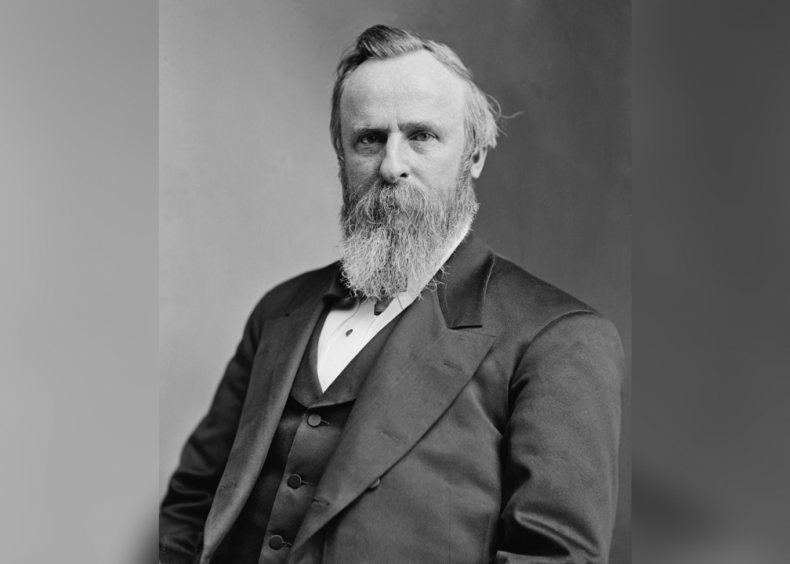
27. Rutherford B. Hayes
– Age at inauguration: 54 years, 151 days
– Order of presidency: 19
Rutherford B. Hayes won the presidency amid a major constitution crisis; though his Democratic opponent Samuel Tilden had won the popular vote, he lacked the electoral votes needed for victory and confusion over electors could allow either man to assume the role. Eventually, a compromise was struck, electing Hayes in exchange for ending Reconstruction in the South. Hayes agreed not to run for a second term and he took a middle-of-the-road governing style, fitting for a president in the middle of our list.
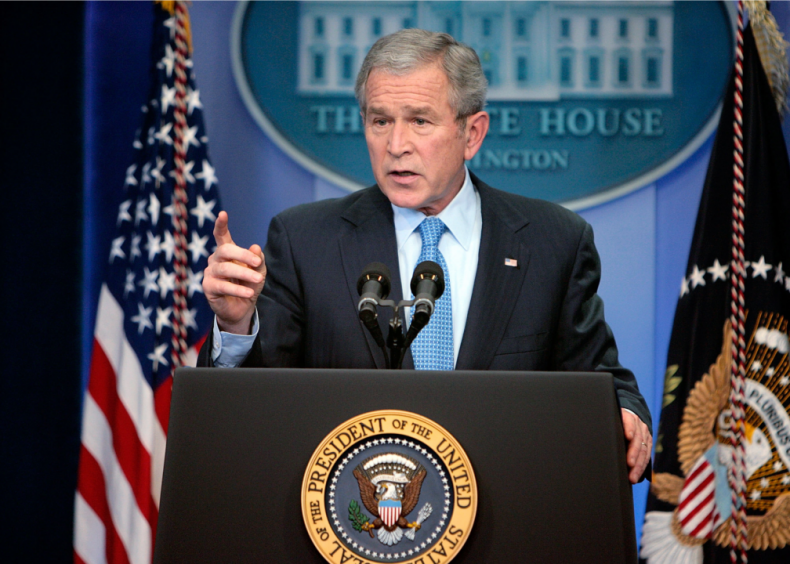
26. George W. Bush
– Age at inauguration: 54 years, 198 days
– Order of presidency: 43
George W. Bush continued his father’s political legacy with his 2000 run for the White House, which pitted his folksy Southern charm and record as Texas’ governor against technocratic Vice President Al Gore. He also brought experienced elder statesman of the Republican Party Dick Cheney onboard—despite criticism from his advisers—due to his standing and long history in U.S. politics, which balanced his perceived inexperience.
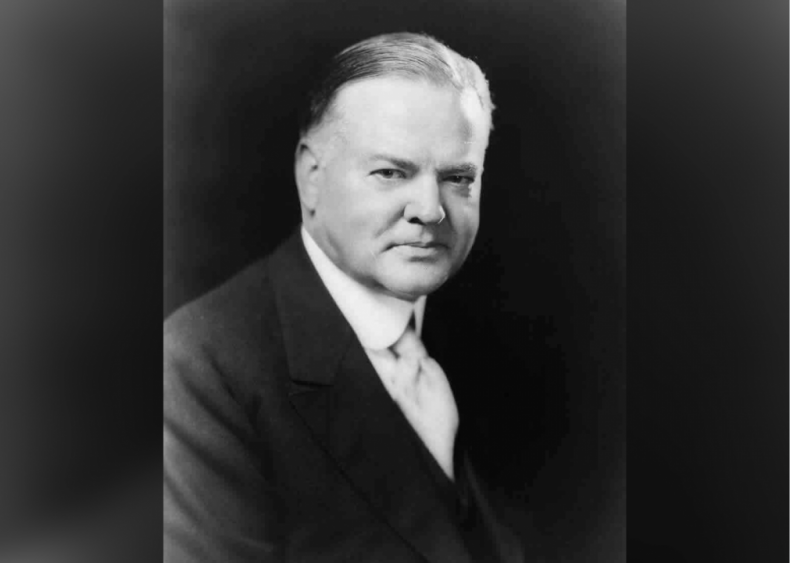
25. Herbert Hoover
– Age at inauguration: 54 years, 206 days
– Order of presidency: 31
Though a noted humanitarian and logistical mastermind, Herbert Hoover had never run for elected office before ascending to the presidency just months before the economic crash of 1929. Though not particularly old or young, Hoover was decidedly stuck in his ways and continued cutting government spending even as the early years of the Great Depression ravaged American households.
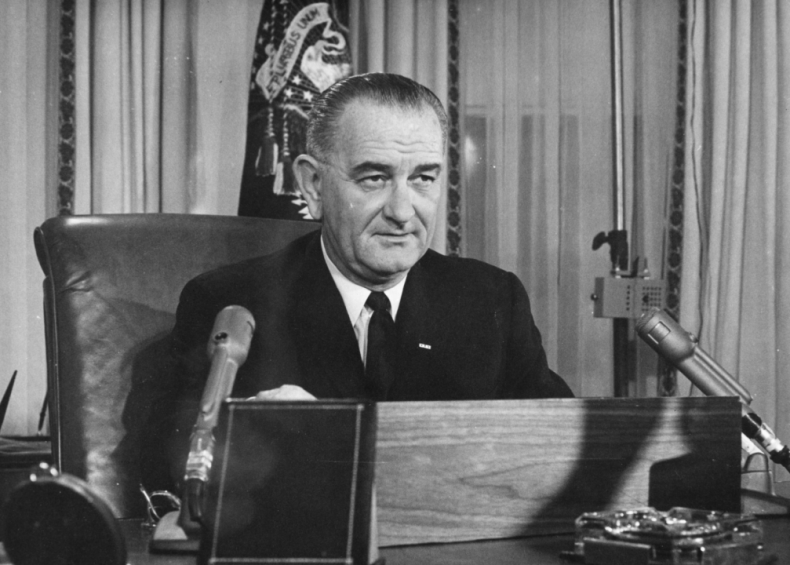
24. Lyndon B. Johnson
– Age at inauguration: 55 years, 87 days
– Order of presidency: 36
After being beaten out for the 1960 presidential election, Lyndon B. Johnson was put on the Democratic ticket with John F. Kennedy to provide a regional balance (he was Southern while Kennedy was from New England) as well asa bit of age and experience to Kennedy’s youth. Kennedy’s assassination on Nov. 11, 1963 catapulted him into the White House, where he continued to push JFK’s liberal, reformist agenda and passed several laws like Medicare that benefited older Americans. LBJ ran for a complete term in 1964, but opted not to seek a second and passed away just a few years later.
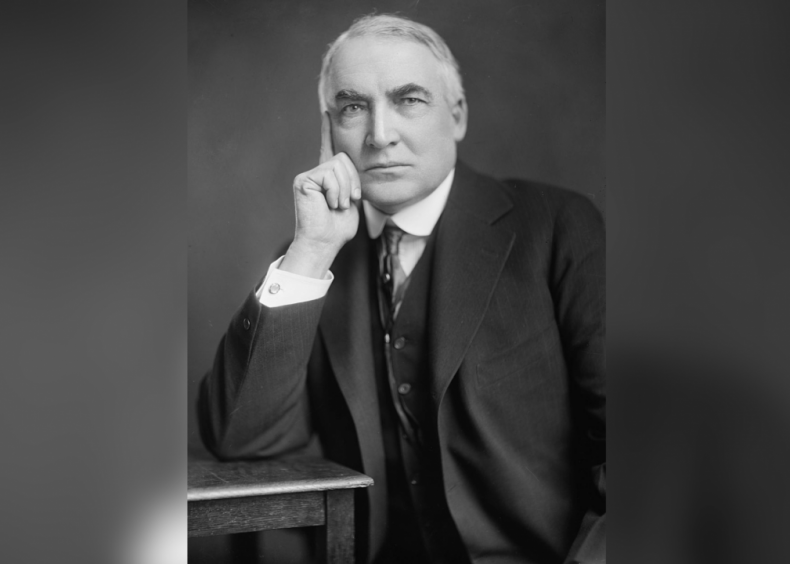
23. Warren G. Harding
– Age at inauguration: 55 years, 122 days
– Order of presidency: 29
An outsider Republican candidate, Harding ran on a conservative platform that opposed much of President Woodrow Wilson’s post-World War I initiative, including the League of Nations. Neither young nor old for a president, age didn’t figure much into Harding’s presidency which made his death while in office all the more surprising. Harding suddenly passed away during his third year in office after suffering from multiple health problems, including a probable food poisoning, during a trip out West; he died of a heart attack that may have been caused by medicine given to him by his doctor.
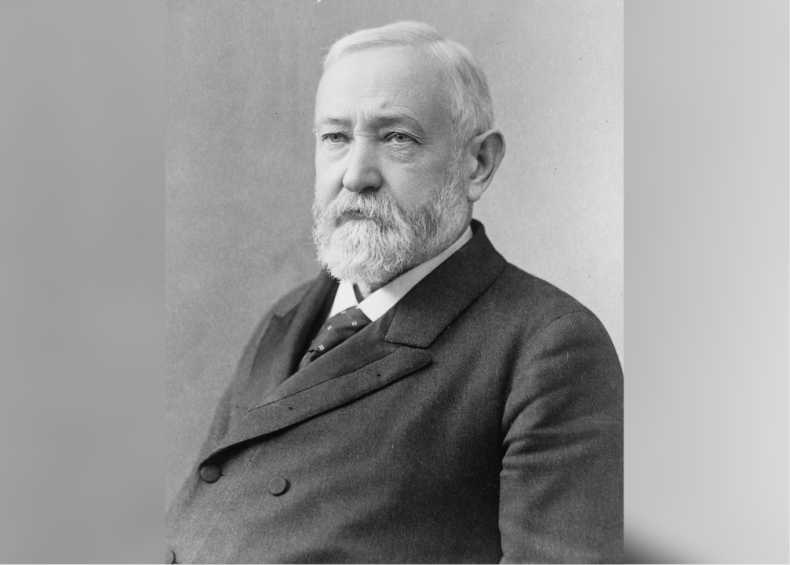
22. Benjamin Harrison
– Age at inauguration: 55 years, 196 days
– Order of presidency: 23
Grandson of President William Henry Harrison, Benjamin Harrison had a younger president’s energy and vigor when it came to his foreign and social policies. He negotiated trade agreements, held the first Pan-American conference and was deeply concerned with the rights of African Americans. His economic policy was a bit more conservative and the protectionist tariffs his administration put into place may have had a hand in a recession that began after his only term ended.
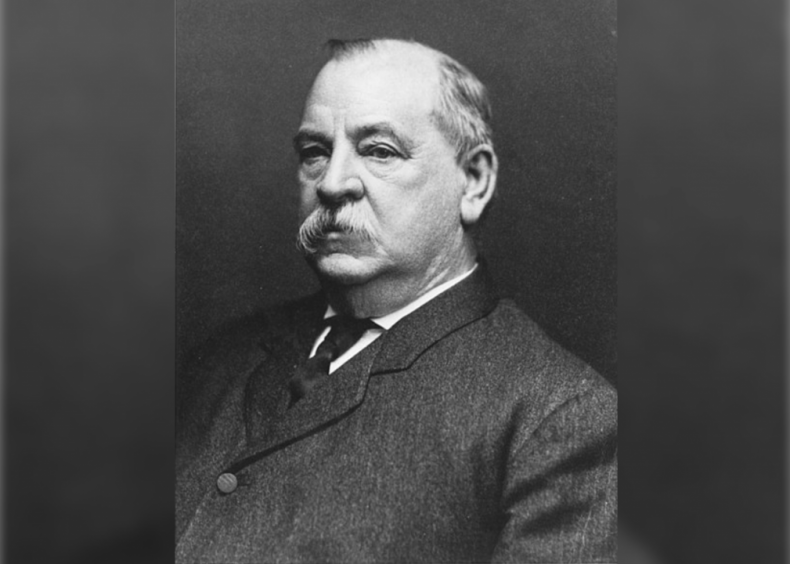
21. Grover Cleveland
– Age at inauguration: 55 years, 351 days
– Order of presidency: 24
Grover Cleveland came back older and a bit wiser in his third campaign for president. Going up against Benjamin Harrison, who’d beaten him in his run for reelection, the two men ran a clean, quiet campaign that was interrupted by the death of Harrison’s wife; Cleveland ultimately proved victorious. Characterized by a devastating economic crisis, Cleveland failed to recapture some of the more youthful energy for social reform that shaped his previous term in office.
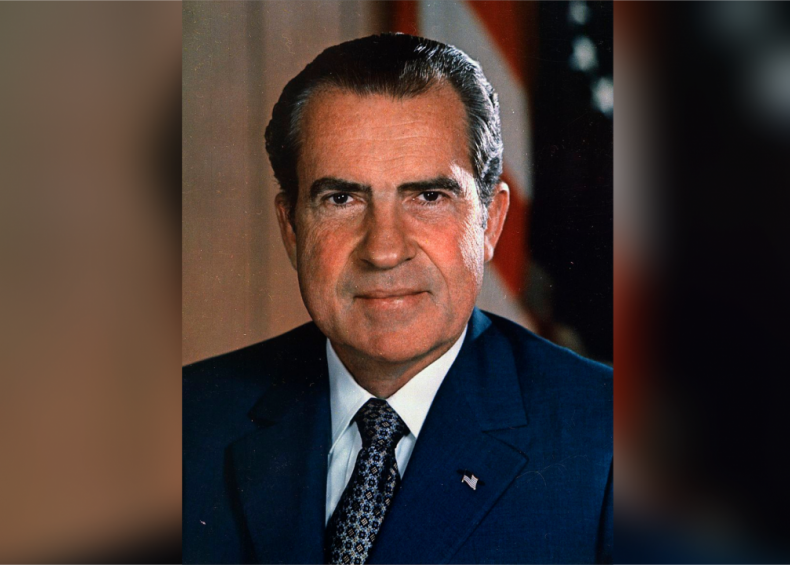
20. Richard M. Nixon
– Age at inauguration: 56 years, 11 days
– Order of presidency: 37
Richard Nixon ascended meteorically through the political ranks, becoming the second-youngest vice president in history at the age of 40. His dizzying ascent was briefly stalled by his unsuccessful run for the presidency in 1960, where John F. Kennedy’s youthful charm proved to take the young Democrat over the top in their close race. Nixon tried for the presidency again several years later, after taking time to rebuild his image and won both his elections in a landslide, but his reputation quickly tanked when the Watergate scandal came to light.
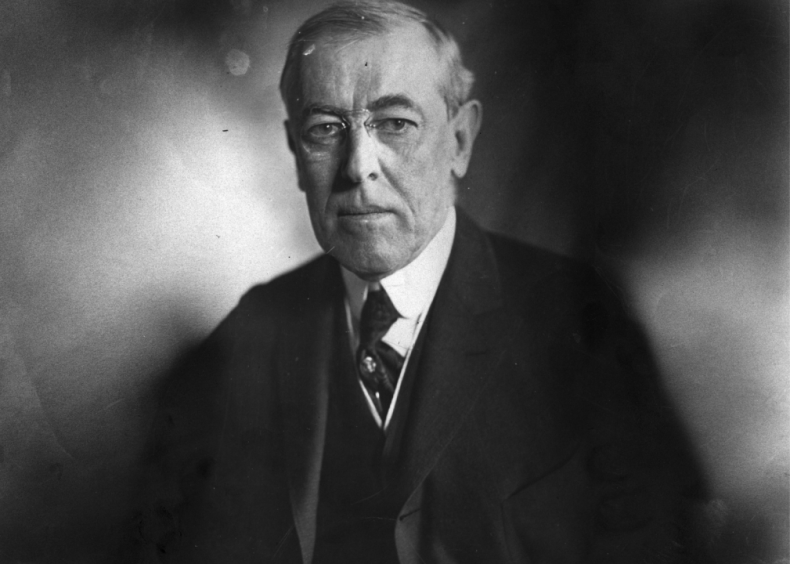
19. Woodrow Wilson
– Age at inauguration: 56 years, 66 days
– Order of presidency: 28
Woodrow Wilson became a leader of the Progressive Movement despite getting his start in conservative Democratic circles. Still, his work reforming labor, keeping the U.S. out of World War I, then later joining the Allies and trying to negotiate a peace treaty visibly aged him while in office, and he had a tendency to overwork himself. In 1919, Wilson suffered a severe stroke after months of ill health while trying to win support for his treaty, leaving his wife Edith to basically run the country until his second term ended.
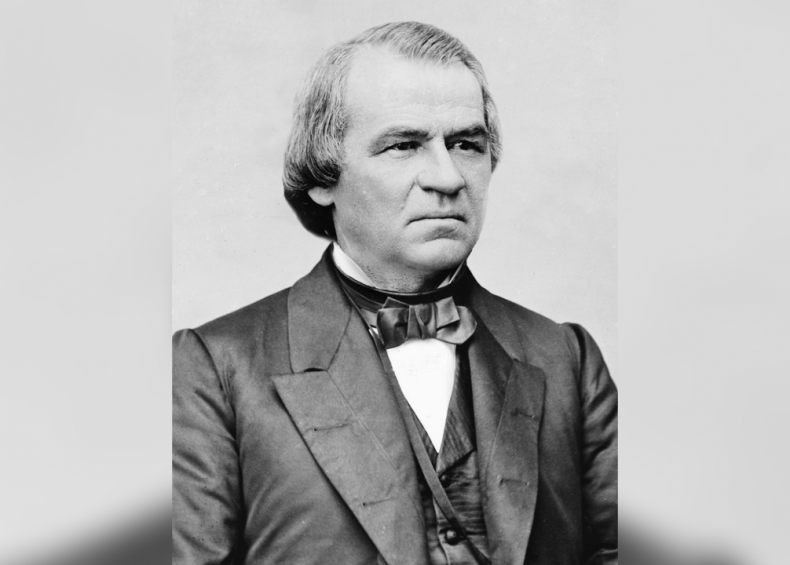
18. Andrew Johnson
– Age at inauguration: 56 years, 107 days
– Order of presidency: 17
Stepping up to the plate after Lincoln’s assassination, Andrew Johnson was decidedly a member of the old guard. A southern Democrat and states’ rights supporter who was deeply suspicious of the project of Reconstruction, his politics differed sharply from the president he replaced and the Radical Republican Congress currently in power. He was the first president to be impeached due to his tense relationship with the legislative branch and survived the attempt to remove him from office by one vote.
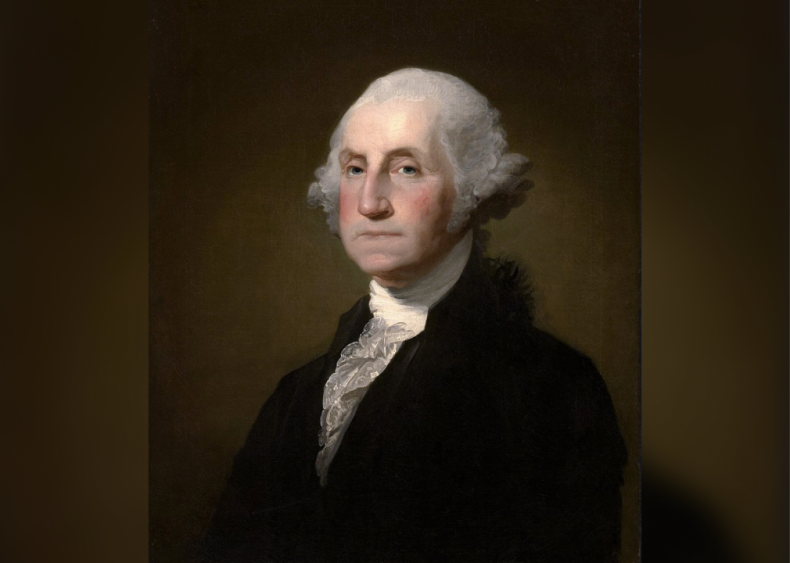
17. George Washington
– Age at inauguration: 57 years, 68 days
– Order of presidency: 1
George Washington, the only president to win every electoral vote, did not originally run for president; rather the Revolutionary War hero and Founding Father was asked to assume the office. He wanted to step down after his first term due to his age, as he was 60 and suffering from several health problems but he stuck around to work on several outstanding issues from his first term. He stepped down after eight years in office to keep his promise not to amass too much power and because he desperately wanted to retire, setting a precedent that shaped modern term limits. He died nearly two years after stepping down.
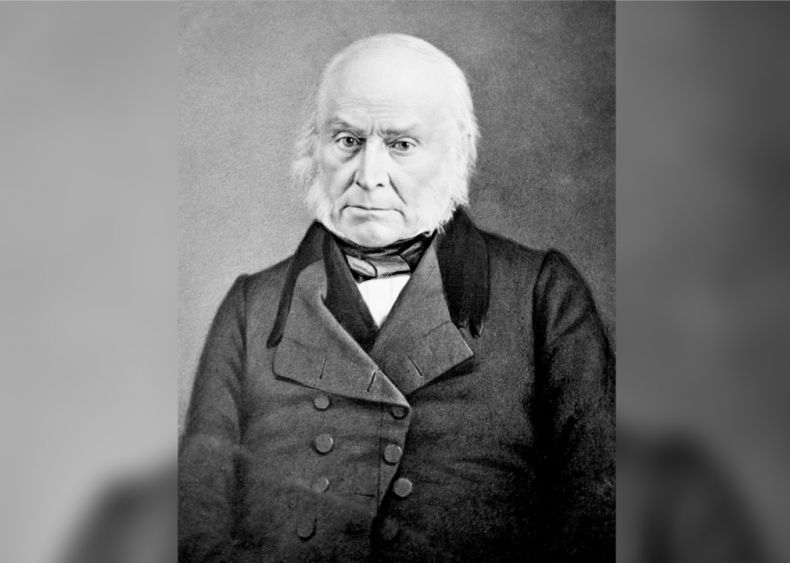
16. John Quincy Adams
– Age at inauguration: 57 years, 236 days
– Order of presidency: 6
Younger than his father when he assumed the presidency, John Quincy Adams served as a senator and Secretary of State before beating out three other competitors including Andrew Jackson, who accused Adams of striking a “corrupt bargain” with fellow candidate Henry Clay for the latter’s support; he would lose to Jackson four years later in a landslide. Though his presidency was short, he lived for decades afterward, earning the nickname “Old Man Eloquent” upon returning to the House of Representatives where he served for another 17 years.
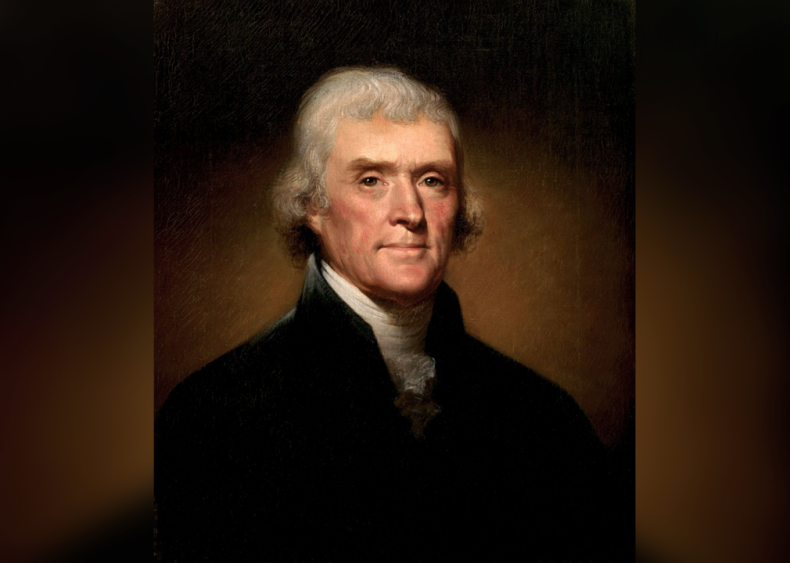
15. Thomas Jefferson
– Age at inauguration: 57 years, 325 days
– Order of presidency: 3
As fans of the musical “Hamilton” might know, the election of 1800, between Thomas Jefferson, incumbent John Quincy Adams, and Aaron Burr, was one of the first truly dirty campaigns which heavily featured negative attacks against candidates’ characters. All were Founding Fathers with long political histories that were ripe for picking apart; Jefferson himself was slammed for his support of the French Revolution and history as a French diplomat by the rival Federalist party. He emerged victorious and used his long political history to become one of the most well-regarded presidents in U.S. history.
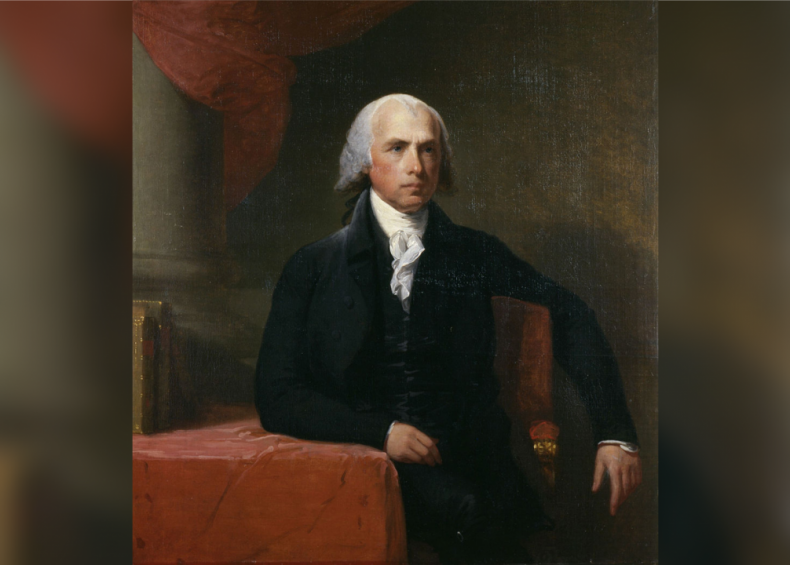
14. James Madison
– Age at inauguration: 57 years, 353 days
– Order of presidency: 4
James Madison was the shortest president and his sickly childhood followed him into his political career; he was once described as a “withered little Apple-John” by writer Washington Irving. His appearance proved deceiving as he accomplished much during the American Revolution, becoming the “Father of the Constitution” and writing the Federalist Papers. His experience with war also helped to shape his presidency, as he oversaw the War of 1812 between the U.S. and Britain and kept the fledgling country from losing to their former rulers.
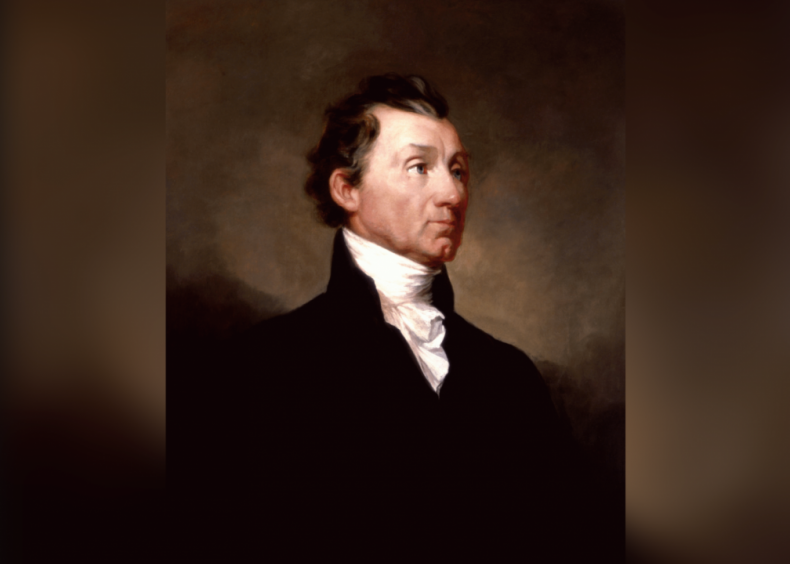
13. James Monroe
– Age at inauguration: 58 years, 310 days
– Order of presidency: 5
James Monroe succeeded his fellow Founding Father (and fellow James) to the presidency in an era of essentially one-party rule while the Federalists found themselves in disarray. He served in a number of political positions, including in James Madison’s cabinet, before winning the White House. That experience prepared him for the extensive foreign-policy actions he would take during his eight years in power, the most significant being the Monroe Doctrine that stated European powers who tried to colonize land in the Western Hemisphere would face America’s wrath.
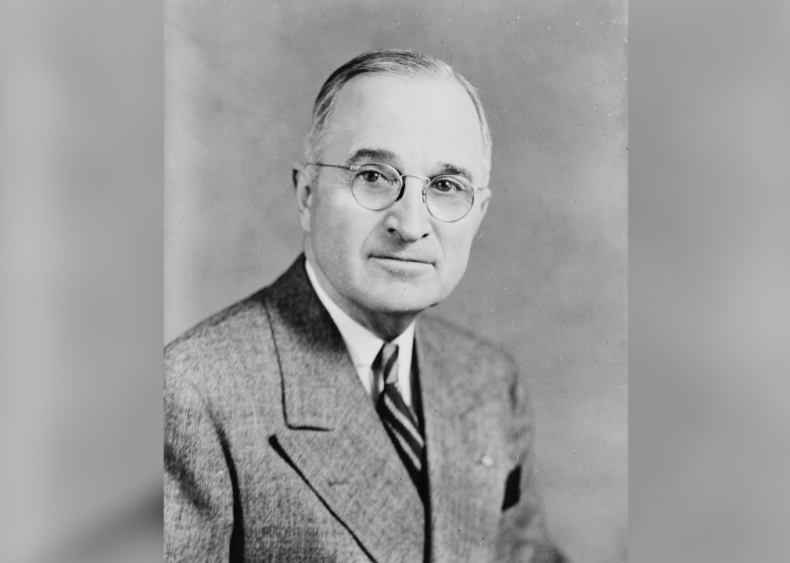
12. Harry S. Truman
– Age at inauguration: 60 years, 339 days
– Order of presidency: 33
Harry Truman came into power on April 12, 1945, only a few weeks into his term as vice president, less than a month before Nazi Germany would surrender, and several months before the atomic bombs dropped on Hiroshima and Nagasaki would end the war in the Pacific. Despite inheriting a less than ideal situation, Truman’s extensive experience allowed him to keep a cool head as the country ended, and moved on from, the war. He also still maintained the energy to push through several incredibly progressive reforms in the vein of FDR, including integrating the military and helping Europe recover financially from World War II.
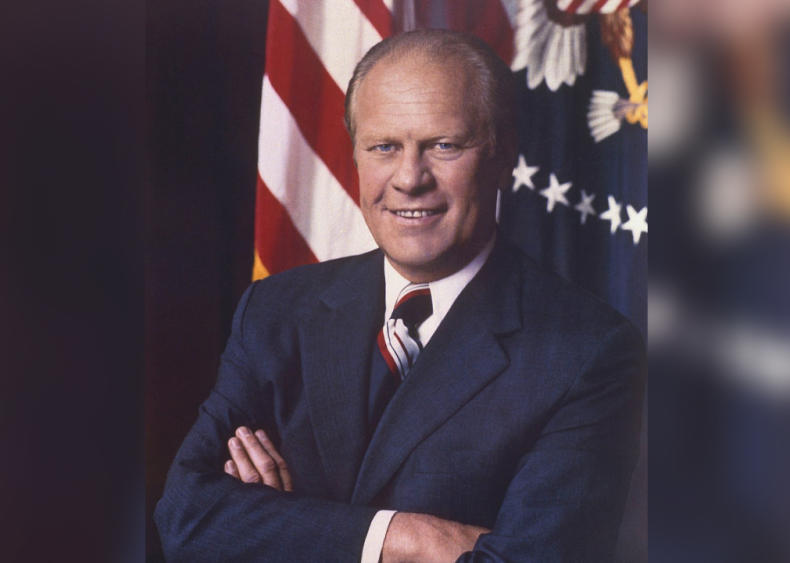
11. Gerald R. Ford
– Age at inauguration: 61 years, 26 days
– Order of presidency: 38
The only vice president to become president without being elected as either president or VP, Gerald Ford assumed a presidency and a Republican Party deeply stained by the Watergate scandal. He had one of the shortest presidencies, not quite able to shake Nixon’s legacy or his image as an inexperienced hack that was broadcast on Saturday Night Live. He lost to outsider candidate Jimmy Carter, but continued a long career after exiting the White House, ultimately living longer than any president before his death in 2006.
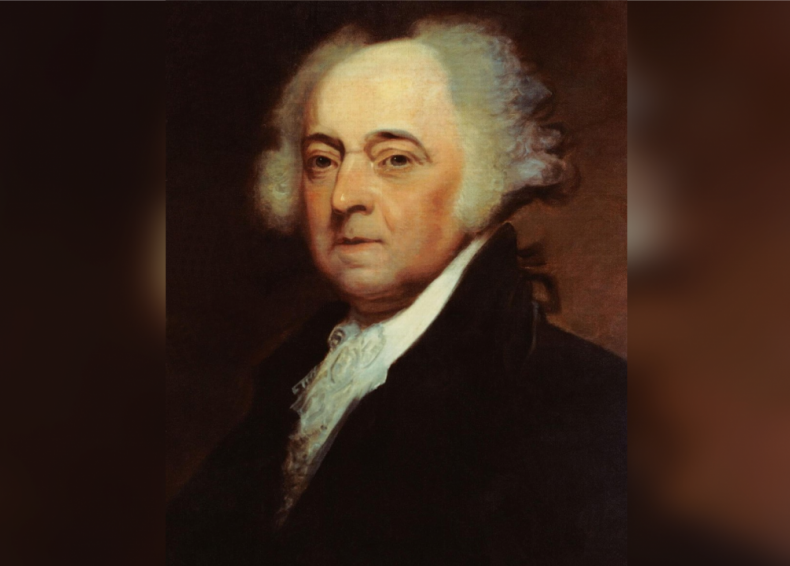
10. John Adams
– Age at inauguration: 61 years, 125 days
– Order of presidency: 2
John Adams won the first contested election in American history, and his extensive history as a diplomat in Europe that negotiated the end of the Revolutionary War meant that his presidency was shaped mostly around foreign policy. Many of these measures proved unpopular, like the Alien and Sedition Acts that banned criticism of the government. He ultimately lived to be 90, which is old for the 21st century, let alone the 19th.
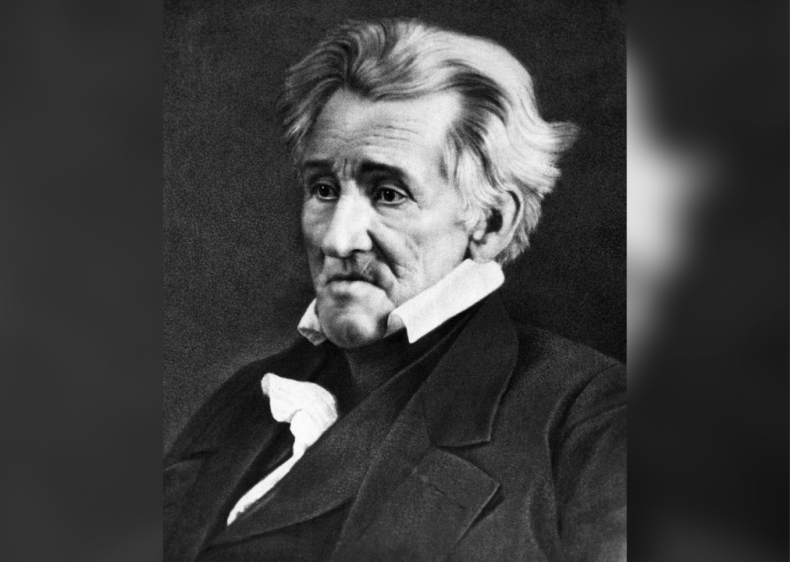
9. Andrew Jackson
– Age at inauguration: 61 years, 354 days
– Order of presidency: 7
A well-known war hero after the War of 1812 and a populist that supported the common people, Andrew Jackson made up for his lack of policy experience with a plethora of lived experience and street smarts that made him the defining president of the generation before Lincoln. He earned his nickname, “Old Hickory,” on the battlefield but it came to stand for two things voters liked about Jackson, his strength and his appearance as an elder statesman for the slowly reforming Democratic-Republican party.
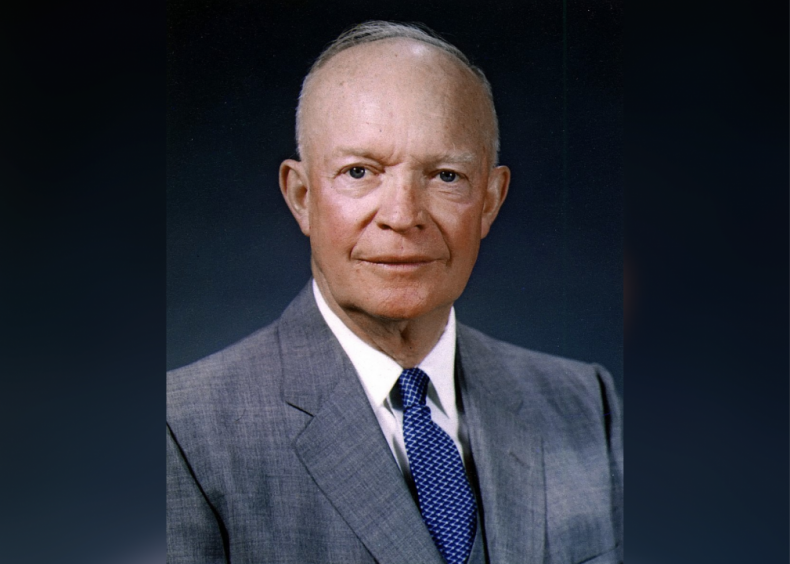
8. Dwight D. Eisenhower
– Age at inauguration: 62 years, 98 days
– Order of presidency: 34
Dwight Eisenhower was a famous military leader in the European theater during World War II and later president of Columbia University, proving he could effectively lead groups as diverse as hardened veterans and college students. He rejected a Democratic presidential bid with Truman as his VP in 1948 and people continued to bother the popular war hero about a presidential bid until he ran and won in 1952. Choosing a young Richard Nixon as his ticket-balancing VP, Eisenhower easily swept to victory; it was unclear whether he would run a second time due to health issues including a heart attack right before the 1956 election but as soon as he decided he would, his victory was basically a foregone conclusion.
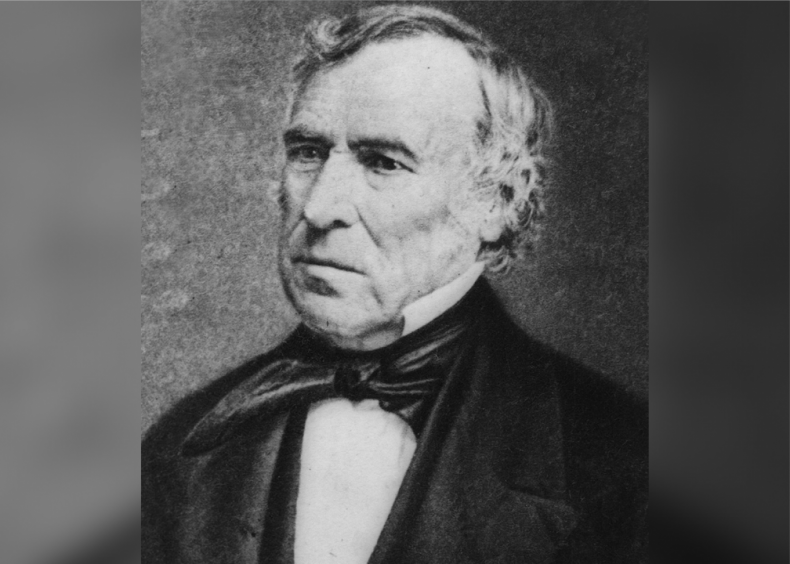
7. Zachary Taylor
– Age at inauguration: 64 years, 100 days
– Order of presidency: 12
“Old Rough and Ready” Zachary Taylor was a hero of the Mexican-American War and a wealthy slave owner who adamantly opposed the secession of the South, threatening violence to lawmakers from slave states who threatened to leave the Union in 1850. He ran apolitically and apparently never cast a vote before he was elected in 1848, but his strong opinions spelled the potential for some big changes in D.C. However, a little over a year into his term, Taylor ate some tainted food in the capitol and, thanks to unsanitary conditions, died of gastroenteritis.
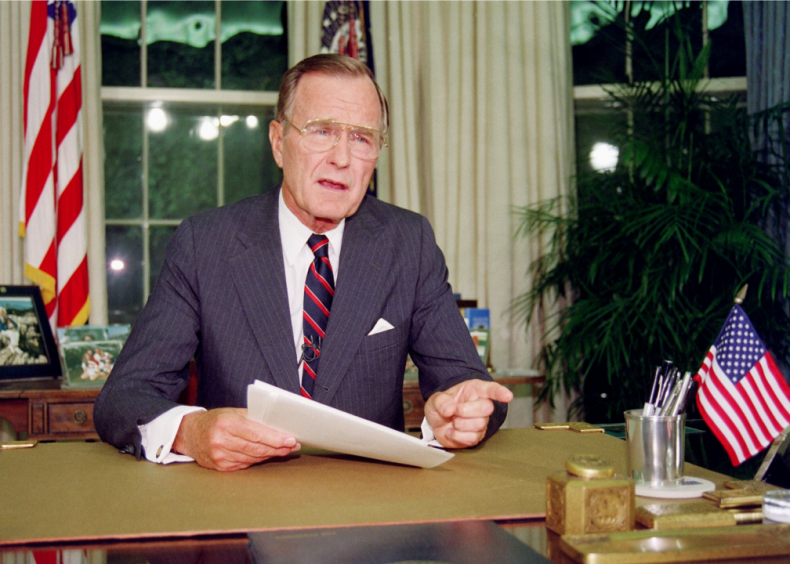
6. George H.W. Bush
– Age at inauguration: 64 years, 222 days
– Order of presidency: 41
Chosen to be the younger running mate of Ronald Reagan after his first failed bid for president, George H. W. Bush decided to do the same as an older presidential nominee for the Republican Party. He and youthful running mate Dan Quayle attacked Democratic nominee Michael Dukakis for being too liberal, soft on crime, and out of touch with everyday Americans. His extensive foreign policy experience prior to winning the presidency gave him a solid record with which to run on but the tides quickly turned; young challengers Bill Clinton and Al Gore were able to connect more with the young people of the day and appear more in touch than the older presidential candidate.
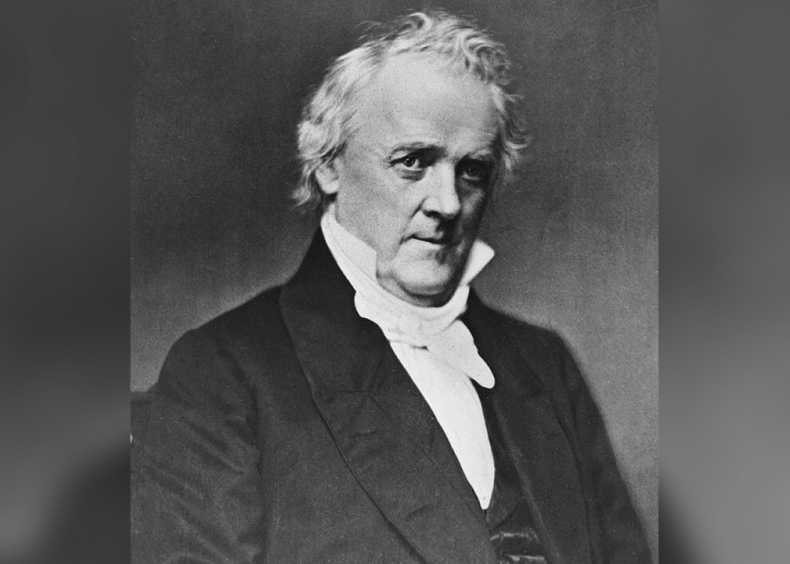
5. James Buchanan
– Age at inauguration: 65 years, 315 days
– Order of presidency: 15
Largely regarded by historians as one of America’s worst presidents for his failure to stop the impending Civil War, James Buchanan tried to maintain a traditionalist stance as discourse over slavery in the country continued to deteriorate. He tried to maintain partisan and regional balance in his executive appointments and emphasis on state’s rights to determine if they should allow slave ownership proved antiquated. Mere months after he left office, Lincoln was president, and the country was at war.
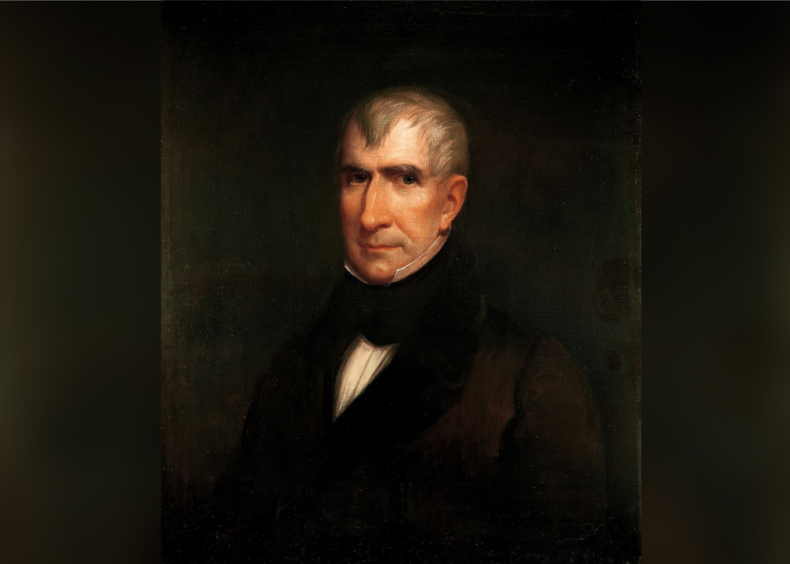
4. William Henry Harrison
– Age at inauguration: 68 years, 23 days
– Order of presidency: 9
William Henry Harrison was the oldest president to be elected until the latter half of the 20th century and he hoped to destabilize the grip Jacksonian Democrats had on the presidency. “Old Tip” was painted by the Whigsas a rustic man of the people as opposed to the sophisticated out of touch Martin Van Buren though Harrison himself was also from a wealthy family and enjoyed fine living. Bringing the Whigs into power was about the only thing Harrison did with his presidency; he caught a chill while giving a long-winded inaugural address and died only a month into his term.
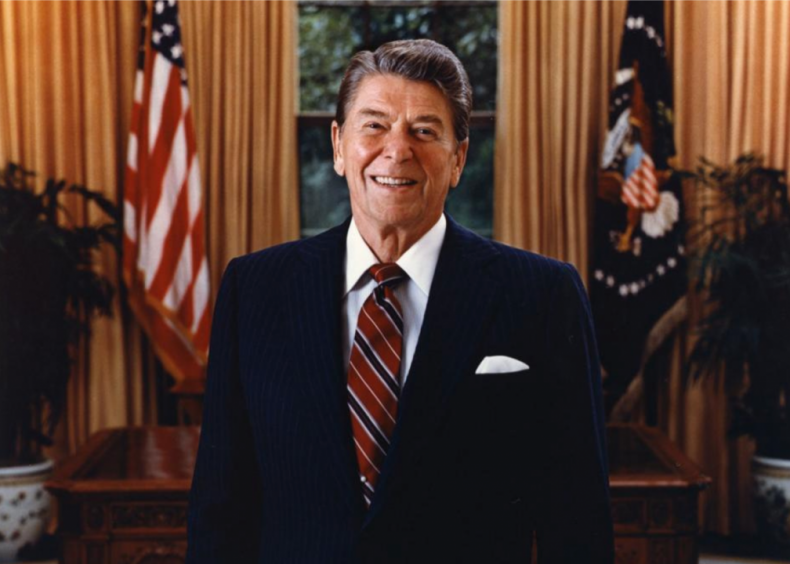
3. Ronald Reagan
– Age at inauguration: 69 years, 348 days
– Order of presidency: 40
Charismatic former movie star Ronald Reagan won in a landslide against Jimmy Carter in 1980, making him already the oldest president to be elected into office. His reelection campaign was plagued with questions about whether he was healthy or mentally fit enough for another term. Reagan brushed off these criticisms in the general election debate against Walter Mondale, quipping that he would “not make age an issue of this campaign and would not “exploit, for political purposes, my opponent’s youth and inexperience.” However, questions of his mental fitness still dogged his second term and even today it is unclear whether he was suffering from Alzheimer’s Disease (which he was diagnosed with after his presidency) while in office.
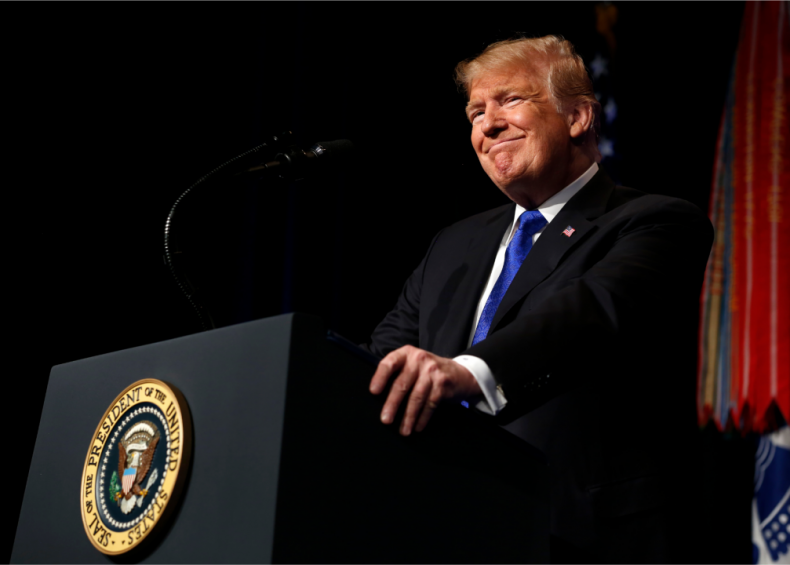
2. Donald J. Trump
– Age at inauguration: 70 years, 220 days
– Order of presidency: 45
Among the many controversies that dogged Donald Trump’s presidency was the question of whether he was too old or mentally unfit to be president. Critics cited his simplistic word choice, habits of misleading or contradicting himself, and other indicators as signs he may have early stages of dementia or other cognitive issues that come with age (though it would be unethical for any doctor or psychiatrist to diagnose him without meeting him in person). For his part, Trump claimed to be a “very stable genius” and pointed to comments by his personal and White House physician citing his health.
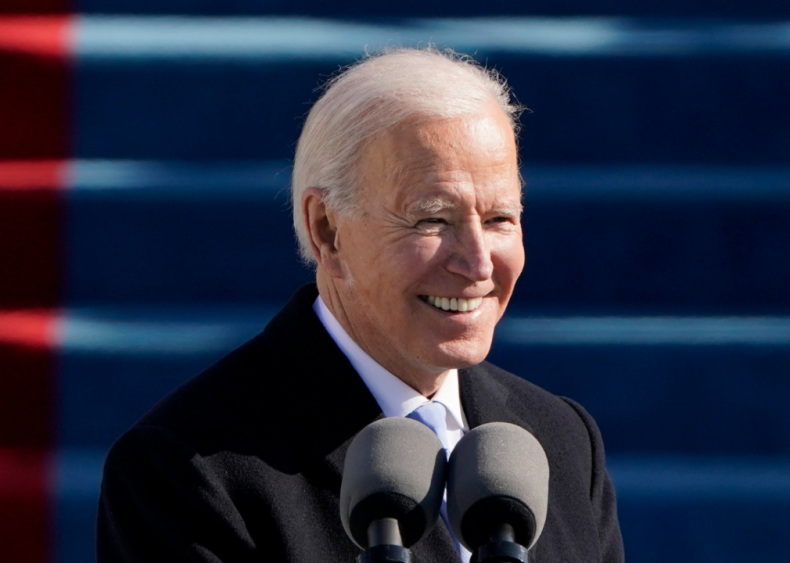
1. Joseph R. Biden
– Age at inauguration: 78 years, 61 days
– Order of presidency: 46
When President Joe Biden was sworn into office on Jan. 20, 2021, he became the oldest person in U.S. history to assume the presidency. Like Trump before him, critics have made much of Biden’s age and speculated extensively about his mental fitness, endurance, and suitability for the job.
[ad_2]
Source link